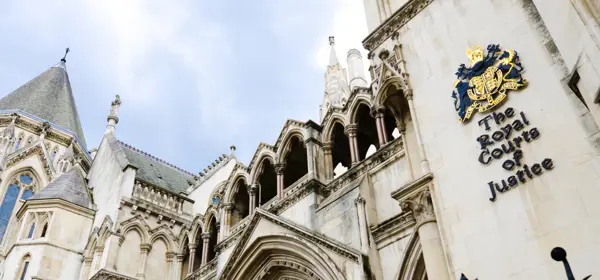BMA ‘considering next steps’ after ‘disappointing’ High Court ruling
BMA ‘considering next steps’ after ‘disappointing’ High Court ruling
Submission that GMC description of PAs and AAs as medical professionals is ‘irrational’ dismissed
The BMA is ‘considering its next steps’ after receiving a ‘disappointing’ ruling from the High Court in its legal challenge of the GMC referring to PAs (physician associates) and AAs (anaesthesia associates) as ‘medical professionals’.
The judge, Mrs Justice Lambert, granted permission for the BMA to seek judicial review but dismissed the grounds of the association’s claim.
BMA council chair Professor Phil Banfield said the court’s ruling had ‘ignored common sense’.
At the two-day High Court hearing in February, the BMA challenged how PAs and AAs had been referred to as ‘medical professionals’ in the GMC’s Good Medical Practice guidance, which it said was ‘irrational’ and put patient safety at risk.
Jenni Richards KC, representing the BMA, said the association was not arguing that there is no role for PAs and AAs, but that their roles should be clearly distinct from doctors and, in the absence of a scope of practice for associates, the public should not be potentially misled into thinking that associate professions can do everything a doctor can.
Claim disputed
The GMC did not accept that its decision to refer to PAs and AAs as ‘medical professionals’ in its guidance had resulted in confusion among patients or that it had undermined their safety. Ivan Hare KC, representing the regulator, said there was ‘no evidence’ of this.
However, earlier this month, the BMA published more than 600 reports of ‘serious concerns’ submitted by doctors and medical students who have witnessed ‘unacceptable blurring of lines between the role of PAs and AAs, and doctors.’
In today’s judgment, Mrs Justice Lambert dismissed the argument made by lawyers for the BMA that the GMC’s decision to apply the umbrella term of ‘medical professional’ to doctors and physician and anaesthesia associates went against its own statutory functions and objectives.
She ruled that the umbrella term is used ‘for members of three different professions, who are all fairly described as medical professionals, while stressing that a member of the PA and AA professions should not misdescribe themselves as a medically qualified person when they are not.’
Ms Richards, for the BMA, had also argued that the GMC’s Good Medical Practice (GMP) guidance ‘conflates rather than differentiates the fundamentally different roles of doctors and associates.’
High standards
Mr Hare, for the GMC, submitted that the GMP guidance did not purport to be a ‘full account of the law’ and that the title of medical professional is not protected under The Medical Act (1983). He argued that by producing shared standards the GMC was in fact furthering patient safety.
Mrs Justice Lambert dismissed the BMA’s submission that GMP guidance conflates the roles, noting the ‘lengthy process of consultation’ undertaken by the GMC which concluded that ‘associate professionals should be held to the same high professional standards as doctors’.
The BMA’s claim that the GMC had acted ‘irrationally’ by referring to associates as medical professionals was also dismissed.
Mrs Justice Lambert said she did not find any logical error or critical gap in the GMC’s reasoning.
Reacting to the judgment, BMA Chair of council Prof Phil Banfield said: ‘This is a disappointing ruling from the High Court.
‘Physician associates do not study medicine and are trained to a very different standard to doctors. By labelling both doctors and PAs as ‘medical professionals’ the public are being misled to think they are similarly or equally qualified. They are not. Having ruled on the legal technicalities the court has ignored common sense, and the effect will be to perpetuate the patient safety issues caused by this confusion.
‘The potential for patient harm in equating the two roles has been shown in the testimony of doctors recently published by the BMA, which includes hundreds of examples of patients put at risk or harmed. This has been recognised by an increasing number of coroners urging the GMC to clearly differentiate between doctors and physician associates following avoidable patient deaths. The danger is even acknowledged by the Health Secretary who agrees that the concerns of patients and doctors have been ignored for too long, concerns which must be properly addressed by the Leng Review due to report later this Spring.
‘During the hearing the GMC was at pains to stress that it had no enforceable statutory duty to protect patient safety: a terrible statement from the medical regulator, though in keeping with its determination to ignore the blaring alarm bells sounded by doctors, coroners and patients.
‘As doctors, however, we do have a duty to uphold patient safety and to speak out when it is compromised. The BMA is considering its next steps in relation to this regrettable ruling.’
Professional representation
The GMC became the regulator of the associate professions following the implementation of the Anaesthesia Associates and Physician Associates Order last December.
Ahead of this, the regulator had already labelled doctors and associates as medical professionals when it published the latest version of its GMP guidance on 22 August 2023.
The BMA announced its intention to seek a judicial review of the GMC’s decision in June last year.



